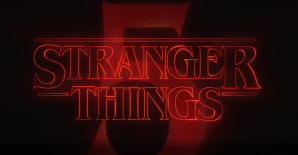Paul Verhoeven, a filmmaker who is no stranger to political subtext (or even text) in his action movies, says the forthcoming remake of Starship Troopers is well-positioned to explore the culture that has brought about a Donald Trump presidency.
Videos by ComicBook.com
It will not, however, take aim at Trump himself; Verhoeven said that if you try to explore something you’re in the middle of, it’s impossible to get the proper distance to judge it. Instead, he studied up on the era around Hitler’s rise to power. The similarities between the two movements has been fairly well-explored territory in the press, but obviously hasn’t made its way into entertainment yet, where there is a necessary gestation period as fiction has to be written and edited.
“We are living in a very interesting, or you can call it scary times, and of course you would like to do something about it, too,” Verhoeven told IndieWire. “But I think if you go to directly into the now you have no distance… you need to have a certain distance as an artist to the project and not be in the middle of it. So [with] all [that] started to happen lately, I started to read about Hitler and studying 1933 and 1934 in Germany, [which] could be a metaphor that you could use to talk about now.”
Verhoeven made it clear that he didn’t mean to make a 1:1 comparison between Trump and Hitler, but there are parallels in their populist rise to power, harnessing anger, disaffection, and millions of people feeling that the system has left them behind.
He referenced Bertram Myron Gross’s 1980 book Friendly Fascism, which more clearly aligns with what he perceives to be the realistic threat to the U.S. status quo. The book, which has been out of print for years but is currently available digitally, critiqued ’80s American capitalism, saying that cronyism and an increasing divide between rich and poor was setting the stage for a less populist and more authoritarian government.
He added that the previous Starship Troopers film, a cult classic, was surprisingly and quietly subversive not because the studio had any particular faith in the script but because mismanagement at Sony meant that the executives overseeing its production changed so often that nobody really had an idea what kind of movie they were making.

“We succeeded to do this movie, that is so subversive, and politically incorrect [because] Sony changed [leadership] every three, four months,” said Verhoeven. “Nobody looked at the rushes [dailies] because they had no time because they were fired every three, four months.So we got away with it because nobody saw it.” Verhoeven added that once a Sony executive saw the film, she said to him, “but these are Nazi flags.”Verhoeven laughed, “I remember saying, ‘Yeah, but they are a different color, really.’”
There is no firm release date for the forthcoming Starship Troopers. Reports are that the film with hew closer to the novel — with its militaristic, jingoistic and fascistic overtones — than the original movie did.









